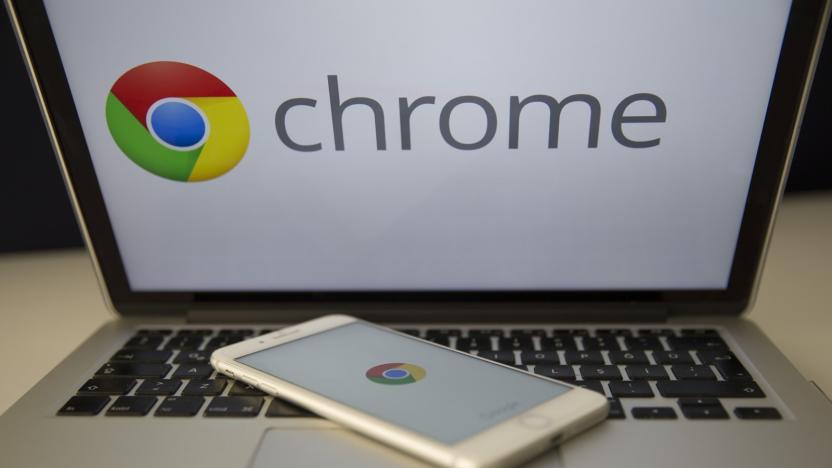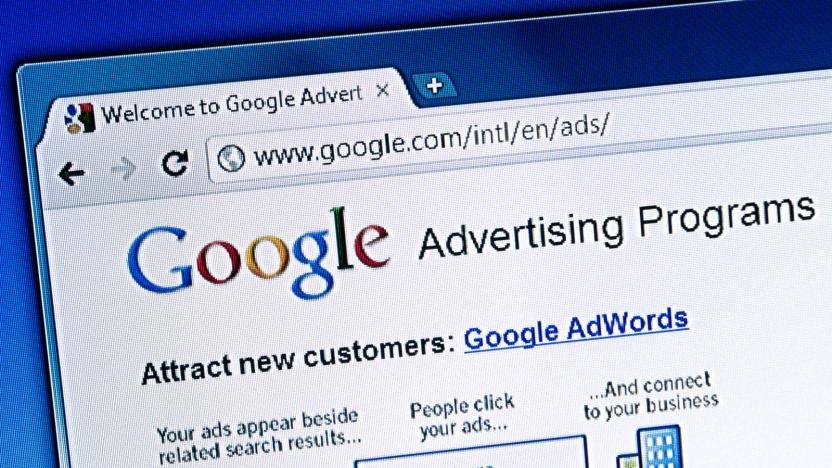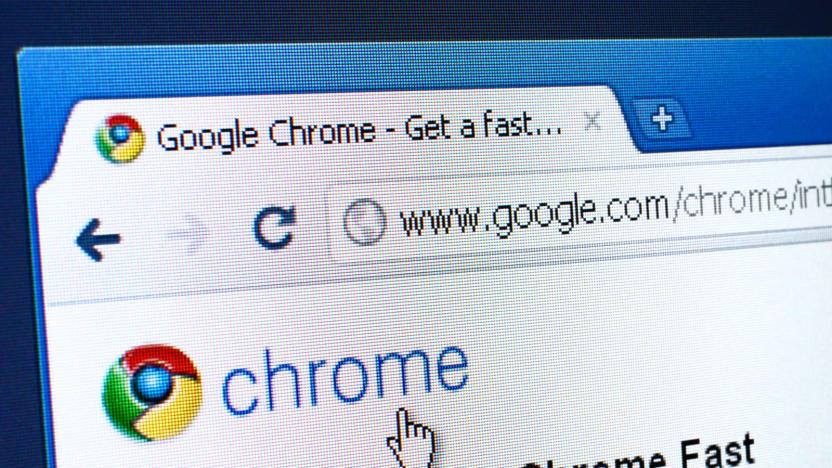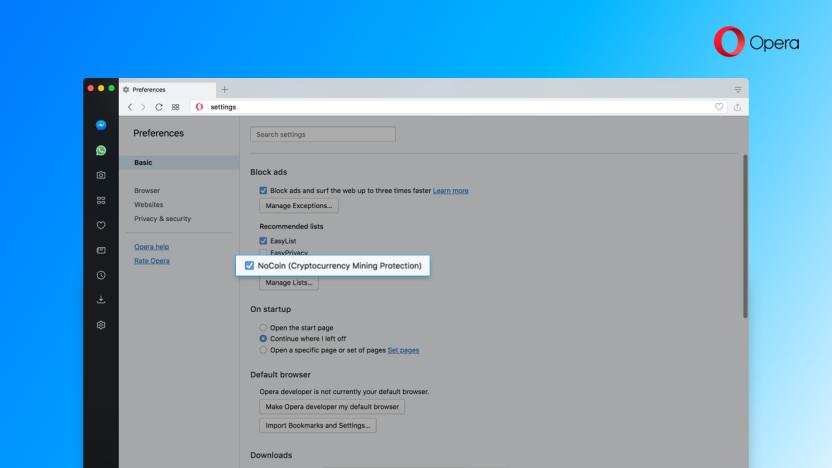AdBlocker
Latest

Chrome will start filtering disruptive ads worldwide in July
Google announced today that it will roll out its ad filter designed to block intrusive and disruptive ads in Chrome worldwide later this year. Starting July 9th, the company will prevent advertisements that violate the Coalition for Better Ads' Better Ads Standards from appearing on sites in any country around the world.

Ad-blocking browser Brave says Google is breaking EU privacy law
Ad-blocking browser Brave has hit Google and other adtech companies with a formal complaint that could set an important privacy precedent for search engines and digital advertising firms. Mozilla co-founder Brendan Eich and his company want to leverage the new GDPR rules to open an EU-wide investigation against these companies, examining the way the platforms are using people's data. According to Brave, Google and other adtech businesses are broadcasting users' browsing habits to hundreds of companies in order for them to place ads.

Fake ad blockers in the Chrome store had over 20 million installs
If you can't find that ad blocker you recently installed from the Chrome Web Store, you might want to do some browser spring cleaning. Google has killed five top-ranking ad blockers after AdGuard published a report revealing they're fake extensions with extra code that harvest info on the websites you visit. They apparently send the data they collect to remote servers in order to manipulate Chrome's behavior. "Basically, this is a botnet composed of browsers infected with the fake adblock extensions," AdGuard wrote in its report. "The browser will do whatever the command center server owner orders it to do."

Google explains how its Chrome ad filter will work
Tomorrow, Chrome will deploy its built-in ad filter that can keep the most annoying types of ads on the internet out of sight even if you don't use an ad blocker. In a post on the Chromium blog, Google has revealed more details about the filter before it drops, going under the hood to explain how it works more clearly. The big G says it starts by evaluating sample pages from a website to determine whether it has any advertisement that violates the standards set by the Coalition for Better Ads.

Opera update keeps sites from hijacking your browser to mine bitcoin
Did you know that your browser can be tricked into mining cryptocurrency like BitCoin without your knowledge? Apparently, there are scripts floating around out there on various servers and website plugins that can hijack your web browser and use its CPU for mining purposes, even after the browser window is closed. Yikes. Opera version 50 releases tomorrow at 10 AM CET, and it includes with cryptocurrency mining protection built right into its ad blocker software.

Samsung inexplicably opens up its Android browser
Samsung has announced that the new version of its browser, Samsung Internet, can be used on any relatively new Android phone, which is good news if you're bored of existing mobile browsers that already do the job perfectly well. The Korean tech giant made its software ambitions known in March when, in response to "many requests", it released a beta version of Samsung Internet (5.4) compatible with Google devices such as the Pixel and Nexus series. Now, the v6 beta version is being released for any phone running Android 5.0, aka Lollipop, or later.

Brave will pay you in Bitcoins for browsing the web (updated)
Brendan Eich, the controversial former CEO of Mozilla, recently launched Brave, a privacy-focused browser that blocks ads and trackers. While that concept isn't new, Brave has a twist: You'll have to pay to completely block ads, and if you allow replacement ads (reportedly free of bloat, tracking and malware) you'll actually get paid yourself. Now, the company has revealed the Brave Ledger, a Bitcoin-based payment system for users and publishers. The specifications aren't final, but Brave is now fielding comments and discussion from advertisers and developers.

Google pulls Samsung-backed ad blocker from the Play Store
Samsung may have stirred up more trouble than it was expecting when it started blocking ads in its Android web browser. Google has pulled Adblock Fast, the app partner for Samsung's feature, from the Play Store. Allegedly, the title (made by Rocketship Apps) violates Google Play's policies by interfering with other apps and services. That's a bit baffling, since Adblock Fast uses Samsung's own code and had the Korean firm's explicit blessing -- Adblock Plus is using the same code and hasn't run into trouble. The concern, as you can imagine, is that Google might be retaliating against Samsung for daring to hurt its bread-and-butter ad business.

You say advertising, I say block that malware
The real reason online advertising is doomed and adblockers thrive? Its malware epidemic is unacknowledged, and out of control. The Forbes 30 Under 30 list came out this week and it featured a prominent security researcher. Other researchers were pleased to see one of their own getting positive attention, and visited the site in droves to view the list. On arrival, like a growing number of websites, Forbes asked readers to turn off ad blockers in order to view the article. After doing so, visitors were immediately served with pop-under malware, primed to infect their computers, and likely silently steal passwords, personal data and banking information. Or, as is popular worldwide with these malware "exploit kits," lock up their hard drives in exchange for Bitcoin ransom. One researcher commented on Twitter that the situation was "ironic" -- and while it's certainly another variant of hackenfreude, ironic isn't exactly the word I'd use to describe what happened.

Apple pulls ad-blocking apps that can 'compromise' security
Apple has removed several ad-blocking apps from its Store that created a risk of "man-in-the-middle" security breaches. While Apple now permits ad-blockers for Safari, the banned apps also block ads from native apps by installing their own "root certificates" and shunting all traffic through a VPN. From there, they read the unencrypted traffic and remove ads, provided you enable the feature. As spotted by Techcrunch, one of the apps Apple removed was "Been Choice," software that even removed ads from Apple's own News app. However, it was also gathering "behavioral data" and sharing it with other companies, offering users points and cash rewards in exchange.

Apple's mobile ad-blockers save you time and money, NYT finds
It's no secret that ad-blocking software, well, blocks ads. Now that Apple allows ad-blockers on its mobile devices, The New York Times decided to find out what else the software does for your iPhone 6's data plan. Turns out, using a mobile ad-blocker in the Safari browser netted a 21 percent increase in battery life (that's with internet browsing only though), significantly lowered the device's data usage and often shaved seconds off loading times. This means ad-blockers can save you money, as well. For example, hitting up the Boston.com homepage every day for a month costs about $9.50 in data usage in ads alone, the study found. That's the most extreme example, since that site featured video ads front-and-center. NYT tested 50 news sites in total, including Engadget.

Google yanks ad-blocking apps from Play Store, points to developer agreement
You know how it goes -- "rules" are only "rules" if someone bothers to enforce them. And enforce Google has. While programs such as AdBlock, AdAway, AdFree and the like have been running unabated for quite some time now, Google has evidently buckled down and yanked the lot of 'em overnight. Of course, the company's Play Store developer agreement already makes clear that apps designed specifically to hinder the natural course of advertising won't be allowed, but it's certainly interesting to see the company finally making good on its words. Specifically, the agreement states: "You agree that you will not engage in any activity with the Market, including the development or distribution of Products, that interferes with, disrupts, damages, or accesses in an unauthorized manner the devices, servers, networks, or other properties or services of any third party including, but not limited to, Android users, Google or any mobile network operator." See that bit about third-party clients' services? We're guessing that it's in reference to implementations of advertising code. Looks like the wild, wild west has a sheriff in town.








